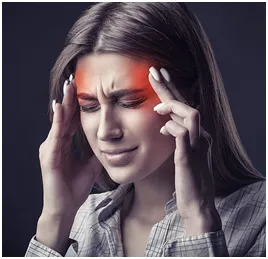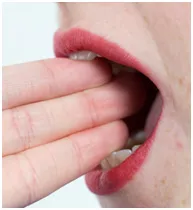tmj and sleep
It is estimated that more than 10 million people in the United States suffer from TMJ problems and jaw pain related headaches. Most of those people spend years and thousands of dollars searching for answers. Some are prescribed one or more medications with significant side effects. Often, many are told that it’s a psychological problem, and they need to learn to live with it. In fact, many dentists and even doctors have very little to no education regarding TMJ in dental or medical school, and the information they might have received was probably outdated.
Thankfully, if YOU fall into this category, you’re not alone. You can have HOPE and find SOLUTIONS.

The latest research indicates that many TMJ problems are caused by untreated sleep apnea. As your body struggles to breathe at night, it activates jaw muscles to keep the airway open—sort of doing its own CPR. You may have experienced this and woken with your jaws clenched. Or maybe you were told that you grind your teeth at night. This behavior, once attributed to stress, could actually be your body’s way of keeping you alive by preventing suffocation.
Talk about stress! Depending on the severity of your sleep apnea, this can happen more than a hundred times a night, creating damage to jaw joints and causing muscle overload. Some people can even end up with severe joint disease or even a locked jaw. Your jaw can be stuck in an open position, so it can’t be fully closed, or stuck closed, so that you can’t open up wide.
Do you have to smash down a sandwich in order to take a bite? If you do, you might have a TMJ problem. A normal opening would allow you to place 3 vertical fingers in your mouth—just wash your hands first please!

The great news is that a dentist with extensive training in sleep-disordered breathing and orofacial pain can recognize this problem and provide treatment that will manage both sleep apnea and TMJ problems.
There are many clues in your mouth that allow an experienced dentist to suspect your TMJ problems are related to sleep problems such as tongue shape, size, and posture; teeth wear; upper and lower jawbones shape and size; and soft tissues inside and outside the mouth. All these structures are evaluated by a knowledgeable dentist to help them design a proper course of action for YOUR specific needs.
A properly designed, custom oral appliance can stabilize the jaw, optimize the flow of air, take the load of the joints and allow the muscles to relax at night, all at the same time. Talk about multi-tasking! This way, you can help both TMJ and sleep problems with one device!
It’s also important to know that a mouthguard made without these considerations can actually make it harder for you to breathe at night and should be avoided. If you are suffering from TMJ and jaw pain, don’t be surprised if your experienced dentist talks to you about your sleep quality. You might be overusing your jaw at night as your body struggles to prevent choking.
It is always best to treat the cause of the problem and not just the symptom. If your jaw pain is caused by sleep apnea, both of these conditions should be treated for the best results—no more pain and better, more restful, refreshing sleep.
